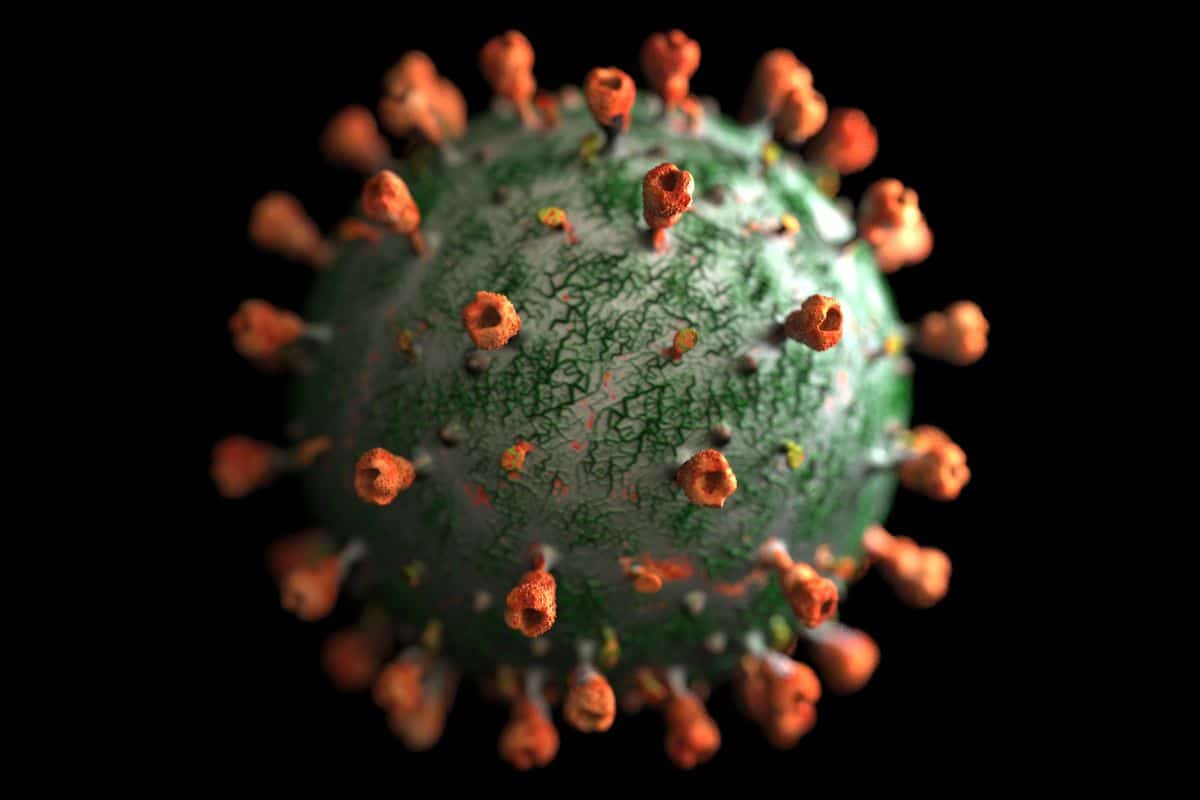

Laboratory experiments suggest that the virus causes the fats in our cells to increase and then uses those fats as fuel. But weight loss medication may be able to stop that.
Researchers write that in the magazine Nature Communications† They rely on experiments in the lab. And those experiments indicate that the coronavirus hijacks the fat balance in our cells, in order to subsequently benefit from it.
The research
Using two different human cell lines, the researchers examined the effect of the coronavirus (SARS-CoV-2) on more than 400 lipids (or fats). “Lipids are an important part of every cell,” explains researcher Jennifer Kyle. “They literally keep us together, by keeping our cells intact. And they are very important for energy storage.”
Increase
The results are impressive. The virus appears to have an enormous influence on the amount of fat in cells; some lipids experienced as much as a 64-fold increase. The number of fats affected by the virus is also impressive; in one cell line this involved almost 80 percent of the fats. In the other at a little more than half.
Triglycerides
The fats that the researchers especially often saw increased in their human cell lines due to SARS-CoV-2 were the triglycerides. These fats are crucial for our health. They play a key role in keeping cell membranes healthy. They also allow us to store energy. When we need that energy, our cells break down those triglycerides into fatty acids that our bodies can use.
However, what the research shows is that SARS-CoV-2 doesn’t just give a huge boost to the amount of triglycerides in our body; it also changes our cellular fat-working system, or the extent to which our bodies are able to use fat for fuel. “It’s remarkable how the virus reshapes the cellular fat-action mechanisms,” said researcher Fikadu Tafesse. Scientias.nl†

When a coronavirus particle enters our cells, it has to pass through our cell membrane. That membrane is made of two layers of lipids. And now lipids appear to play an important role in the replication of the virus. Image: Michael Perkins/Pacific Northwest National Laboratory.
Energy
It is not so surprising that the virus specifically targets lipids – and in particular triglycerides. Because what the coronavirus has in common with us is that it needs energy. “As the virus replicates, it needs a continuous flow of energy,” Tafesse said. And the fatty substances in our cells invaded by the virus can provide that energy. “More triglycerides can provide that energy in the form of fatty acids.” It is therefore believed that the virus hijacks cellular fat production and processing to safeguard its own skin.
Weight Loss Medications
It is unclear exactly how the virus controls cellular fat production and processing. “That requires more research,” says Tafesse. But what the researchers saw happening in the cell lines got them thinking. Because if those fats are so important for the coronavirus, what happens if the virus fails to increase the amount of fat-like substances in our cells? The researchers decided to find out. To this end, they looked for drugs that have been developed to influence the amount of fat in our cells. For example, they ended up with Orlistat, an already approved weight loss drug. The drug prevents triglycerides from being broken down into fatty acids. When the SARS-CoV-2 infected cell lines were treated with Orlistat, the virus was deprived of those fatty acids and thus fuel. And the coronavirus did not care about that; it stopped replicating within 48 hours.
In its infancy
“It’s exciting,” Tafesse says. But at the same time, it is important that we realize that research is still in its infancy. “We have an interesting observation here, but we still have a lot to learn about the mechanisms behind it.” It is also important to note that the results are based on a collection of cells in the lab and not on experiments with humans or animals. “But the effect we saw in the cells is remarkable and worth investigating now in humans or with the help of animal models,” says Tafesse. And who knows, it may eventually lead to a completely new treatment against this virus or other viruses – because Tafesse’s team already showed that viruses such as Zika and HIV also cause changes in cellular fat metabolism. But that is distant future music for now.
In addition, the research could also provide more insight into how SARS-CoV-2 works and why some people get sicker than others. For example, the discovery that SARS-CoV-2 may make grateful use of our fat may help explain why obese or overweight people are more likely to end up in hospital after infection by the coronavirus. “But we also need to investigate that further.” Just like the question of how the fat-like substances in our cells fare after we have recovered from our corona infection.
Source material:
†COVID-19 fattens up our body’s cells to fuel its viral takeover– Oregon Health and Science University
Interview with Fikadu Tafesse
Image at the top of this article: Voxelimage from pixabay (via Canva.com)